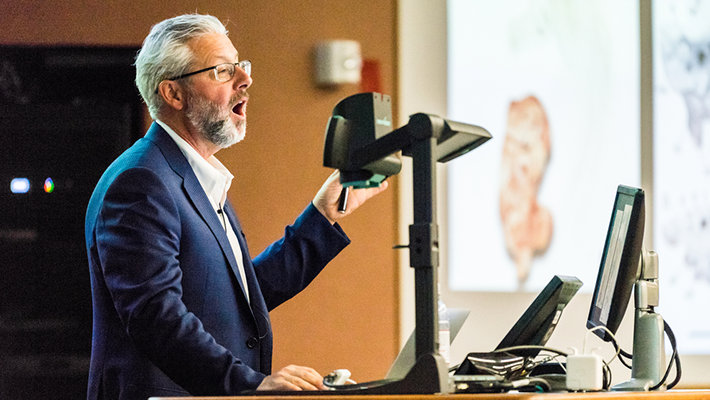
-
HOME
-
WHAT IS STANDOur Mission Our Values Our Help Contact
-
WHAT WE FIGHT FORReligious Freedom Religious Literacy Equality & Human Rights Inclusion & Respect Free Speech Responsible Journalism Corporate Accountability
-
RESOURCESExpert Studies Landmark Decisions White Papers FAQs David Miscavige Religious Freedom Resource Center Freedom of Religion & Human Rights Topic Index Priest-Penitent Privilege Islamophobia
-
HATE MONITORBiased Media Propagandists Hatemongers False Experts Hate Monitor Blog
-
NEWSROOMNews Media Watch Videos Blog
-
TAKE ACTIONCombat Hate & Discrimination Champion Freedom of Religion Demand Accountability
Those Who Reject “Organized Religion” Don’t Know What They’re Missing
A recent Pew study found that “Americans have been abandoning organized religion in droves.”
A growing demographic of the United States—now at 22 percent—describe themselves as “spiritual, but not religious.” Better than a third of that 22 percent say that religion does more harm than good.

“That label ‘spiritual but not religious’ really describes a kind of negative identity more than it describes a particular positive identity,” said Nancy Ammerman, a retired professor of sociology at Boston University who advised on the study. “It describes people who are turned off by organized religion.”
“Spiritual but not religious” is a “negative identity?” Wait. What?
“Turned off by organized religion?” Wait. What?
We’ve all had it—that discussion of religion, spirituality, the nature of life and so on that hits a brick wall when someone opines, “I’m not into organized religion.”
No religion that is organized burns doubters at the stake. No religion that is organized calls inquisitions and rains torture and terror on non-believers.
The speaker thus feels elevated an inch or two above the topic. Anyone foolish enough to ask why is then treated to a history (negative) of all that organized religion has done (negative)—wars, bigotry, torture, stake-burnings, witch hunts and the like—all carried out in the name of “organized religion.”
The flaw in the argument isn’t the history itself; there have indeed been execrable things done in the name of religion. But to blame that on organized religion is to misunderstand what organized religion is. All religions that have lasted any amount of time have certain things in common. They all teach that there is something more to humans than flesh and blood. They all submit that there IS a purpose to life, either now or later on. They all advance that there is a moral point to the universe and one’s role in it. Some have practices and rituals that are there to help bond and proof one up to these points. But above all, every religion that has survived has been organized.
No religion that is organized burns doubters at the stake. No religion that is organized calls inquisitions and rains torture and terror on non-believers. No religion that is organized decrees a state religion and inflicts genocide on those who don’t subscribe to it. In fact, no religion worthy of the name does that. Where extremists and evildoers dwell, where those with hate in their hearts thrive—deep in the shadows—they may call what they do religion, but what they do is no more religion than the KKK is Christianity. It is no more religion than the repugnance practiced by the Taliban, Isis and terrorists is Islam.
What your well-intentioned friend is sniffing down upon is not organized religion at all, but a mockery of faith that makes religion look like the evils that all religions—and you and I—fight.
What has organized religion wrought? Hospitals, seats of learning, soaring artworks and humanitarian charities too numerous to catalog, but which stretch hand-to-hand across the length and breadth of the globe. Organized religion, it may be argued, has been the main, if not the sole civilizing influence our species has had. When barbarian hordes extinguished light and learning throughout Western culture it was the monks and holy folk that preserved the books and carried the cultural load until help arrived in the form of Medieval and then Renaissance Europe.
Scientology Founder L. Ron Hubbard in his essay, “Religious Influence in Society,” contrasts what organized religion brings to a culture with what its decriers take away.
“Religion is the first sense of community. Your sense of community occurs by reason of mutual experience with others. Where the religious sense of community and with it real trust and integrity can be destroyed then that society is like a sand castle unable to defend itself against the inexorable sea.
“For the last hundred years or so religion has been beset with a relentless attack. You have been told it’s the ‘opiate of the masses,’ that it’s unscientific, that it is primitive; in short, that it is a delusion.
“But beneath all these attacks on organized religion there was a more fundamental target: the spirituality of man, your own basic spiritual nature, self-respect and peace of mind.”
Community, spirituality (not as a negative but positive identity), peace of mind, self-respect. These things form the bedrock of a happy and inclusive society.
By looking up at the heavens we raise ourselves out of the mud. By reaching for something larger and greater we have ourselves grown larger and greater. By believing that there is Someone or Something out there or up there or everywhere that can help us, we have recognized our obligation to help one another.
And thus a community happens, a culture happens, a civilization happens.
So the next time your smug friend makes you feel just a tad small, just a skosh uncomfortable, just a smidgen timid about your own fine and true and perfectly lovely allegiance to the religion of your choice, realize that person is unwittingly choosing the shadows and not the light. You may want to gently remind them of that, while you continue finding hope, reassurance and joy in your beliefs and in the beautiful organized religious community in which you play your key part.









